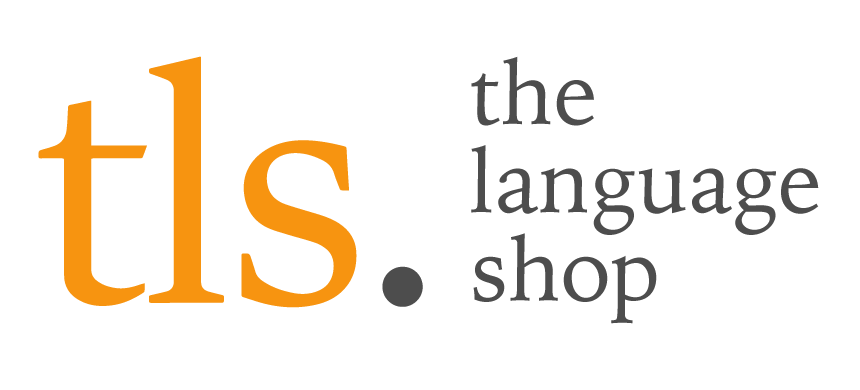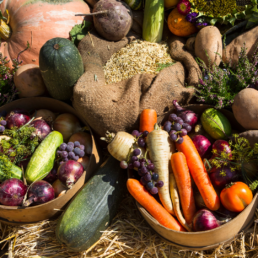September 2023 language and cultural dates for your diary
Calendar snapshots
25th – Yom Kippur, Jewish
A festival of atonement, Yom Kippur is the most sacred day in the Jewish calendar. It is marked by a 25-hour fast, continuous prayer and abstention from wearing leather shoes, make up or perfume.
23rd – International Day of Sign Languages
This UN awareness day is celebrated during the International Week of the Deaf (the last full week of September each year). It promotes the use of sign language as central to Deaf people’s human rights, and celebrates the diversity of sign languages and Deaf culture worldwide.
28th – Meskel, Ethiopian Orthodox
Meskel marks the 4th century discovery of the crucifixion cross in Jerusalem. Celebrants hold a big bonfire in Meskel Square, Addis Ababa. Worshippers from different churches across Ethiopia gather, wearing colours that represent their churches and playing musical instruments, each of which holds special meaning.
This month’s dates at a glance
Religious/cultural
7 – Krishna Janmashtami, Hindu
8 – Feast of the Birth of the Virgin Mary, Christian
Nativity of The Theotokos, Orthodox Christian
11 – Paryushana Parvarambha begins, Jain
14 – Feast of the Cross, Christian
16-17 – Rosh Hashanah, Judaism
18 – Fast of Gedaliah, Judaism
19 – Ganesh Chaturthi, Hindu
Samvatsari, Jain
21 – Feast of Saint Matthew, Christian
23 – Mabon, Wicca and Pagan
25 – Yom Kippur, Judaism
27 – Mawlid Al-Nabi, Islam
28 – Meskel, Ethiopian Orthodox Christian
Anant Chaturdashi, Hindu
29 – Feast of Saint Michael and All Angels, Christian
30 Sept-6 Oct – Sukkot, Judaism
Awareness And Events
5 – International Day of Charity
10 – World Suicide Prevention Day
18 – International Equal Pay Day
Professional Care Workers Week
19 – International Week of the Deaf
Adult Learners Week
21 – World Alzheimer’s Day
23 – Autumn Equinox
23 – International Day of Sign Languages
25 Sept-1 Oct – UK National Inclusion Week
30 Sept – National Non-Verbal Awareness Day UK
Focus on: Lughnasadh, Wicca and Pagan/Lammas, Christian, 1st August
What: Traditionally a Celtic harvest festival but later adopted and renamed by Christianity.
Why: Lughnasadh marks the first day of autumn, the first fruits of the year and the beginning of darker, shorter days.
How: Traditionally, rural communities would get together in large numbers, perform matchmaking ceremonies, participate in ritual sports contests, climb mountains, feast, dance and trade. It was a way to lift spirits during a hungry time of year when the spring and early summer harvests were over but the late summer harvest was not ready to eat. Nowadays, some traditions remain, such as fairs in Ireland and mountain hikes, and neopagans have reclaimed the date.
We always love to hear from customers about their own celebrations. Please get in touch if you have observed any of August's festivals and would like to share stories or photos with us!
August 2023 dates for your diary
Calendar snapshots
13th-15th – Obon
This is the Buddhist celebration of ancestors. During Obon, it is thought that the dead visit the living, so celebrants hang out lanterns to guide spirits, perform dances, visit graves and make food offerings to the dead. Mainly celebrated in Japan, Obon is one of the country’s three major holidays.
23rd – International Day for the Remembrance of the Slave Trade and its Abolition
This day was started by Haitians and people in Gorée Island, Senegal, and then adopted by UNESCO. The date was chosen to commemorate uprisings in Haiti in 1791, led by the now legendary Toussaint Louverture, and the touchpaper for other uprisings, all of which eventually led to abolition of the Transatlantic trade. Find out more and download resources on the UNESCO site.
30th – Raksha Bandhan, Hindu/Sikh/Jain
Raksha Bandhan is tradition honouring the love and bond between siblings, referencing a legend showing love and devotion between Lord Krishna and his sister. Siblings tie a ‘rakhri’ (red thread bracelet) to each other’s wrists. This symbolises protection.
This month’s dates at a glance
Religious/Cultural
1 – Lammas, Christian
Lughnasadh, Wicca and Pagan
Fast in Honour of the Holy Mother of The Lord Jesus, Orthodox Christian
2 – The 15th of Av, Judaism
6 – Feast of Transfiguration, Christian
Transfiguration of The Lord, Orthodox Christian
10 – Feast of Saint Lawrence, Christian
13-15- Obon, Buddhist
15 – Assumption of Mary, Catholic Christian
Dormition of The Theotokos, Orthodox Christian
22 – Feast of The Queenship of Mary, Catholic Christian
24 – Feast of Saint Bartholomew The Apostle, Christian
29 – Beheading of Saint John The Baptist, Christian
30 – Raksha Bandhan, Hindu
Awareness And Events
9 – International Day of The World’s Indigenous People
19 – World Humanitarian Day
22 – International Day Commemorating the Victims of Acts of Violence Based on Religion or Belief
23 – International Day for the Remembrance of the Slave Trade and its Abolition
Rare Language Fact File: Chambri
Native to: East Sepik, Papua New Guinea
Number of native speakers: Approximately 800
Spoken by: The Chambri people
Learn some: Greet Chambri people in the morning by saying ‘yabke karembi’, and after lunch with ‘yabke kabantamp’.
Interesting facts:
- The Chambri were historically war-like and had a reputation as hunters of people. However, they had good trade relations with their neighbouring tribes, such as the Iatmul, who would provide food in exchange for handmade tools. When the Iatmul started to use mass-produced tools, the Chambri were forced to flee their ancestral land, fearing they no longer had a use for the larger, also warlike Iatmul tribe. They returned in the early twentieth century after peace had been established.
- European anthropologists speculated that women were dominant in Chambri society, as they had responsibility for fishing (the bulk of the Chambri diet) and trade. However, more detailed observation revealed that the sexes operated along strictly divided lines, but were more or less equal in standing – still a very unusual situation!
- Marriage practices reflect this divide: arranged marriage is the norm, but there is no dowry tradition, as the Chambri believe this demeans women. Men arrange the marriages but potential brides have input into the decision, working closely with their male family members to make a good pairing. Siblings act as each other’s main support, negotiating power for the family within the tribe and providing parental input for extended family’s children.
The Language Shop provides support in any language you may need, including many of the rarer ones. Please speak to your account manager about your requirements.
Meet The Team: English and Spanish face to face interpreter Tania Rodriguez
Every month, we introduce you to one of The Language Shop (tls) team. This month, meet Tania Rodriguez, a face to face interpreter working in English and Spanish.
Tell us about the role you do for tls
I translate the spoken conversation from one language to another, in sectors such as healthcare and welfare. I find it exciting because in this way interpreters are breaking this language barrier, making the client/patient safer, confident and informed.
What’s been your favourite project at tls?
I could say that I cannot choose just one project because the work that TLS does is absolutely stunning. My favourite part on this job is mental health bookings as the patient can be themselves, talking in their own language
without missing any details. This is really crucial and makes a positive impact on the therapies.
What has been your biggest challenge?
My biggest challenge was to combine my studies of Community Interpreter with a full-time job and at the same time rehearsing for a play in a drama group!
If you didn’t do your current job, what would you like to do?
I think I would carry on my studies to work as an acting coach or a drama teacher, but it is hard to think about not doing my current job, as I could say interpreting is my passion.
Tell us something interesting about you.
Two of my main skills are my active listening and capacity to retain information and reproduce long paragraphs or long statements etc. In the past I did not find this very useful, but in this role I can deliver good work due these skills and find it really rewarding. And I feel I can help the community by delivering an accurate translation.
If you could meet someone, living or dead, who would it be and why
There are so many personalities that I admire and I could learn from. I could say Mike Leigh, because he is my favourite director. He implemented a new acting technique, promoting improvisation and being natural, with hard work and creativity.
What are your ambitions for the next 12 months?
Carry on working for The Language Shop interpreting, as well as helping other interpreters develop, and to deliver good work, maybe as an assessor if that is possible.
If you would like to be profiled, or know someone else who would, please get in touch by emailing zainub.patel@newham.gov.uk.
July 2023 dates for your diary
Calendar snapshots
10th – Martyrdom of the Báb
Martyrdom of the Báb remembers the execution of Sayyed ʻAlí Muḥammad Shírází, aka the Báb and one of the founders of the Bahai religion. In 1850, he was charged with apostasy by the Persian Empire and imprisoned along with his followers. He was killed by a firing squad.
14th – International Non Binary People’s Day
Since its launch in 2012, this day raises awareness of the specific issues facing non binary people. The date was chosen as it falls exactly halfway between International Women’s Day in March and International Men’s Day in November.
19th – Islamic New Year
The Islamic calendar month of Muharram is the first of the year and it renews in 2023 in the Gregorian month of July, though this changes every year. Muslims do not generally hold big celebrations on this day, however in some Muslim-majority countries it is a national holiday.
This month’s dates at a glance
Religious/cultural
3 – Feast of The Saint Thomas the Apostle, Christian
3 – Asalha Puja (Dharma Day), Buddhist
5 – Birthday of Guru Hargobind, Sikh
10 – Martyrdom of The Báb, Baha’i
15 – Saint Vladimir the Great Day, Orthodox Christian
19 – Islamic New Year, Islam
22 – Feast of Saint Mary Magdalene, Christian
23 – Birthday of Guru Har Krishan, Sikh
23 – Birthday of Emperor Haile Selassie, Rastafari
24 – Pioneer Day, Mormon Christian
25 – Saint James the Great’s Day, Christian
27 – Tish’a B’av, Judaism
28 – Ashura, Islam
Awareness and events
14 – International Non-Binary People’s Day
18 – Nelson Mandela International Day
28 – World Hepatitis Day
Rare Language Fact File: Archi
Native to: Southern Dagestan, Russia
Number of native speakers: 970
Spoken by: The Archi people
Learn some: Greeting in Archi is straightforward: warchami is a general way to say hello to anyone, no matter the time of day.
Interesting facts:
- Archi is so grammatically complex, there are more than 1.5 million possible forms from each verb root (eg in English, there are fewer than ten)!
- It also has 26 vowel sounds and between 74 and 82 consonants, including a consonant sound that is not heard in any other language on Earth.
- The Archi live approximately 2,000km above sea level, in the mountains. Their way of life – shepherding and weaving – has persevered and so has their language, despite efforts to force them to use Russian and larger neighbouring languages. They practise a blend of Sunni Islam and more ancient ‘folk’ forms of the religion.
The Language Shop provides support in any language you may need, including many of the rarer ones. Please speak to your account manager about your requirements.
Focus on: Tish’a B’av, 27 July
What: This day marks the conclusion of an annual period of mourning and fasting, known as the Three Weeks. Tish’a B’av falls on the 9th day of the month of Av.
Why: The 9th of Av marks the destruction of two Holy Temples, the first by the Babylonians in 425 BC, and the second by the Romans in 69 AD. According to scripture, this second date marks the Jews being driven out into the desert and the beginning of their centuries in exile. For this reason, the Three Weeks and Tish’a B’av are the saddest festivals of the Jewish calendar.
How: During the Three Weeks mourning period, Jews are instructed not to listen to music, buy new clothes, marry or cut their hair. From the first day of Av, observant Jews will not wear freshly washed clothes, eat meat or drink wine. On the evening before Tish’a B’av, people attend Synagogue to hear readings from the Book of Lamentations. The mourning intensifies; until the festival is over, many will abstain from washing, using perfumes or creams, greeting each other, wearing leather shoes or having marital relations. A meal of bread and a boiled egg dipped in ashes is taken alone, sitting on a low stool. The mourning extends until midday on the 10th of Av.
We always love to hear from customers about their own celebrations. Please get in touch if you have observed any of July’s festivals and would like to share stories or photos with us!
Meet The Team: Jenai Campbell from the TLS Examinations Team
Every month, we introduce you to one of our team. This month, meet Jenai Campbell from the TLS Examinations Team.
Tell us about the role you do for TLS
I am a Service Coordinator for the Examinations Team at TLS, which entails quite a range of varied tasks, but I am principally involved in the Paper Setting assignments. On a day-to-day basis, I am usually creating and reviewing materials to be used in the remote exams, liaising with external freelancers who also assist with Paper Setting, or supporting the rest of the Examinations Team in miscellaneous duties.
What's been your favourite project at TLS?
I began working at TLS in November 2022, around the same time that the Paper Setting project, in which a new bank of materials is being created using a new format for the remote exams, was just beginning. Therefore, I have been able to witness and participate in the growth of this project along with the rest of the team and the new recruits along the way. Seeing the accumulation of materials and the improvements over time in the work submitted by freelancers that you have helped to support is extremely rewarding, and a motivating reminder of how my contributions manifest into results for the team.
What has been your biggest challenge?
I would say my biggest challenge so far was feeling confident in myself when I first had to start giving feedback about work that was submitted for use in the Paper Setting project. Despite knowing that it was constructive feedback, it took me a little while to have the confidence in myself to know that I was giving the correct advice and supporting the external team members correctly.
If you didn’t do your current job, what would you like to do?
When asked as a child what my dream job would be, I used to say that I wanted to be a stunt double! Now, I would say that I would like to be a literary translator (slightly less risky). Having studied French and Spanish at university, and completed a master's in translation, I found that my love for languages and for reading were neatly combined in translating literature.
Tell us something interesting about you.
I restarted gymnastics last year, joining an adult gymnastics club. I previously did gymnastics between the ages of 4 and 8 years old, training 5 days a week for up to 4 hours per session, but stopped when my older sisters got injured because I didn't want to train without them! I took up pole fitness when I was at university and loved it but wanted to have another go at gymnastics when I moved back to London, so now I have fallen in love with the sport and training all over again (without the pressure of competing!).
If you could meet someone, living or dead, who would it be and why?
I would love to meet Malorie Blackman. I loved reading her books growing up, I feel like she was a significant part of my childhood and as I've grown up and watched her interviews, or been to talks that she has delivered, I've come to learn what an inspiration she is.
What are your ambitions for the next 12 months?
Professionally, I would like to continue learning and developing my skills within the Examinations Team, particularly when it comes to the delivery side of the business. Personally, I would like to continue with swimming lessons which I began this year as a New Year's resolution, to conquer my fear of water!
If you would like to be profiled, or know someone else who would, please get in touch by emailing zainub.patel@newham.gov.uk
Service under the Spotlight: Scheduled Video Interpreting
Each month, we get you better acquainted with a TLS service; when and why you might need it, how to book it and how to make the most of the booking.
You may be new to the world of booking language support, or perhaps you book the same service each time because you don’t know what else is out there, or perhaps you have never considered that something different might work for you – this is for you!
It is for you if:
you need the flexibility of having the conversation with your service user in any location, eg working from home, or you and your service user are not geographically close.
It is not for you if:
you need to build trust or rapport with your service user and interpreter – in sensitive situations, eg a mental health appointment, it is usually better to talk in person.
When it works best:
scheduled video interpreting is best for relatively uncomplicated and uncontroversial conversations with people who are comfortable using screens to communicate.
Tips to get the most from your booking:
- Use our dedicated booking portal, to find and book your interpreter. This makes everything easy and quick. Once you know how to use it, you will be able to book a remote interpreter anywhere you have access to a computer.
- Make sure you’re familiar with the technology you’ll be using in the booking – how to share your screen, how to mute yourself, how to make sure there’s nothing confidential on show.
- Set parameters at the start of the booking. Most of us know how to behave in face to face situations, but remote meetings are still something of an unknown. Tell everyone how to interrupt politely, how to take turns, when to mute themselves.
If you would like to know more, call our bookings team for guidance and support on 0808 175 1230.









